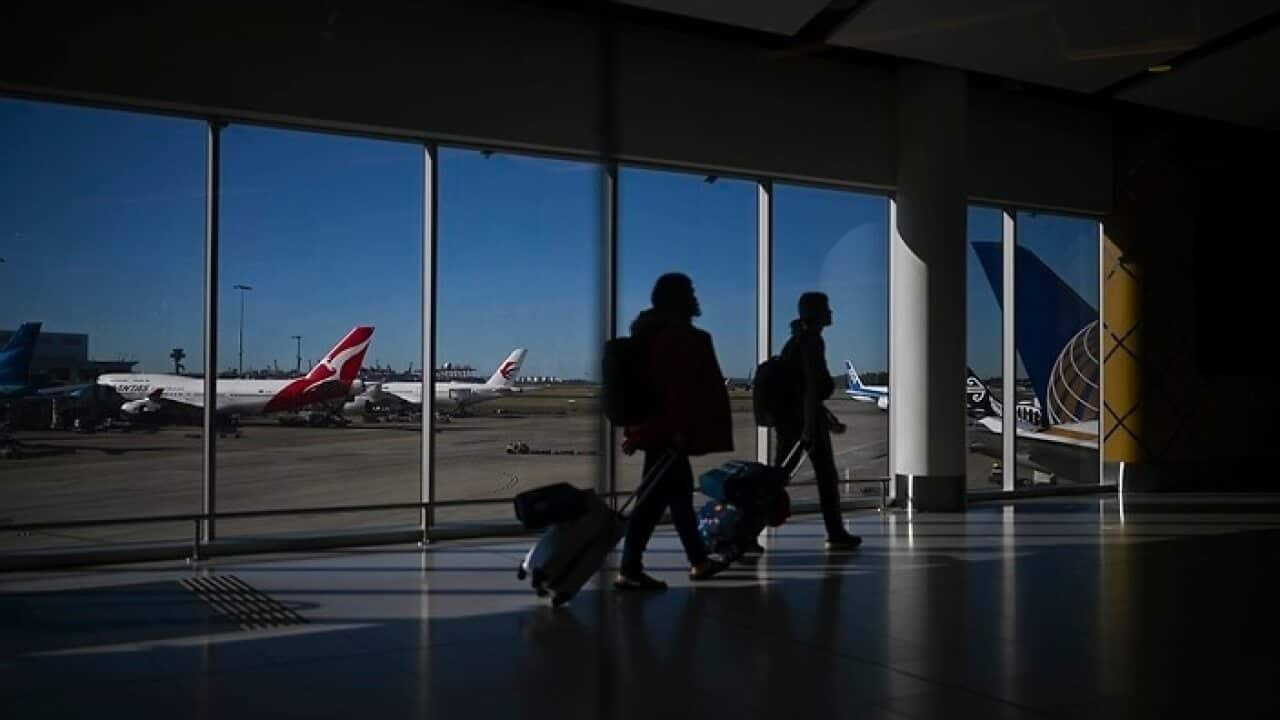Australians have been warned to prepare for rising coronavirus case numbers of up to 1,000 a week when international borders open.
The news comes as authorities investigate a potential link between the death of a 48-year-old woman in NSW who reportedly received a COVID vaccination before developing blood clots.
Prime Minister Scott Morrison asked people not to jump to conclusions about the woman's death as state and federal agencies gather further information.
Australians under the age of 50 were last week warned off receiving the AstraZeneca COVID vaccine, after a link was confirmed between the jab and rare blood clots.
The warning added to delays in Australia's vaccine rollout and made airlines' preparation for an October restart for overseas travel look optimistic.
The federal government's dumped timetable means Australia's border is unlikely to reopen until 2022.
Mr Morrison said Australians had become used to recording days of zero community transmission but that would need to change.
"If we were to lift the borders and people were to come, then you would see those cases increase," he told 6PR radio.
"Australians would have to become used to dealing with a thousand cases a week or more."
Mr Morrison said states and territories would need to get on the same page about acceptable virus levels when travel restarts.
It comes after he revealed his “first goal” in reopening international borders would be allowing vaccinated Australians to go overseas “for important purposes”, such as work, medical reasons or funerals.
“The first goal I think is to enable Australians who are vaccinated to be able to move and travel, particularly for important purposes. And secondly, for Australian residents and citizens from overseas who have been properly vaccinated, they will be able to come back in that way,” Mr Morrison told the Community Vaccine Forum at the Stirling Community Centre in Perth on Thursday.
“That would enable Australians to travel first for business and those sorts of things but ultimately if that worked well over a period of time and the data was showing that home-based quarantine was not creating any additional, scaled risks, that could lead to something more significant. That is how we move to the next step.
“That would require being vaccinated and I think that would be an important incentive to do that.”
Australian Medical Association president Omar Khorshid said vaccinations would be the country's way out of the health crisis.
"We don't have COVID now, but COVID is coming," he told ABC radio.
"We cannot keep this virus out of Australia forever unless we become a true island nation with no travel."
Mr Morrison continues to defend the vaccine rollout, rejecting comparisons with less developed nations at more advanced stages.
"There's been a bit of a pile-on about the vaccine but the facts are people are getting vaccinated and we want to encourage people to get vaccinated," he told 2GB radio.
While mass vaccination centres are likely to administer the Pfizer and Novavax jabs later in the year, the prime minister rejected using major hubs to give doses of AstraZeneca to over-50s.
"Herding elderly people into stadiums I don't think is the right way to do things," he said.
Despite doctors raising concerns about vaccine supply, Mr Morrison is adamant those issues have been largely solved.
"You're going to hear the criticisms, that doesn't mean that's the universal story.
"Any program has its criticisms and where we hear that we seek to address them and make sure the program works better."
Labor leader Anthony Albanese continues to criticise the government for its slow vaccine rollout.
"The only successful rolling that Scott Morrison has done since he became prime minister is the rolling of Malcolm Turnbull that he did in order to secure that position," he said.
More than 1.3 million people have been vaccinated since the program started in February with the government missing its own targets.












